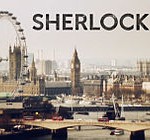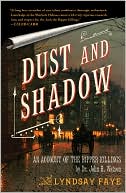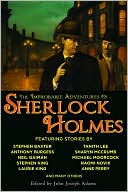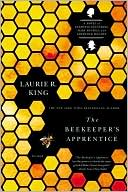 As 2013 draws to a close, it’s time to take a look back and attempt to decide which books were the best of the year.
As 2013 draws to a close, it’s time to take a look back and attempt to decide which books were the best of the year.
OK, so this list is the best of my year. Why not? Everyone else is doing it!
But seriously, it’s both a surprise and a delight to look back and see which books got one of the rare A+ ratings. Or even just an A. (Along with the discovery that I need to do a better job of tagging to make them easier to find.)
There aren’t a lot of romances on this list. Not because I didn’t read some good ones this year, but because, well “reasons” as Cass says. Mostly because I do a separate list of the Best Ebook Romances for Library Journal every year, and also recap that list here at Reading Reality. So romance gets pretty much covered.
And speaking of Cass, she contributed her trademark snark to this list. Along with a dose of draconic awesomesauce.
These are the books that stuck with me this year. Sometimes to the point where I was still telling people about them months later, or where I am haunting NetGalley, Edelweiss or the author’s website looking for news of the next book in the series or their next book, period.
Cass’s thoughts on her faves are very definitely hers. And her picks probably won’t surprise anyone who has seen her dragon shoes. (Note from Cass: Do you want to see my dragon shoes?! They are amazing!)
Whatever your choices were for this or any other year, I hope you enjoyed every single page of them!
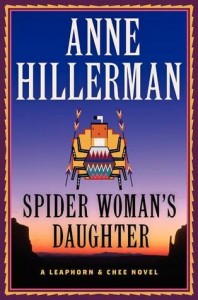 Spider Woman’s Daughter by Anne Hillerman (A+ Review). This is a case where life parallels art in a manner that is fitting and poignant. In the story, Navajo Nation Police Officer Bernie Manuelito picks up the case after retired “Legendary Lieutenant” Joe Leaphorn is gunned down in front of her outside a local diner. In real life, Anne Hillerman picks up the case of continuing her father Tony Hillerman’s mystery series by changing protagonists, using a female officer sandwiched between conflicting roles to solve the mystery of who shot the man she loves as an honorary father.
Spider Woman’s Daughter by Anne Hillerman (A+ Review). This is a case where life parallels art in a manner that is fitting and poignant. In the story, Navajo Nation Police Officer Bernie Manuelito picks up the case after retired “Legendary Lieutenant” Joe Leaphorn is gunned down in front of her outside a local diner. In real life, Anne Hillerman picks up the case of continuing her father Tony Hillerman’s mystery series by changing protagonists, using a female officer sandwiched between conflicting roles to solve the mystery of who shot the man she loves as an honorary father.
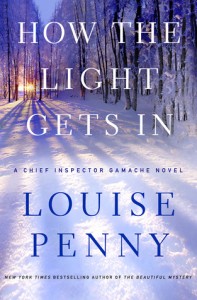 How the Light Gets In by Louise Penny (A+ Review) This was simply stunning, and there’s no other word to describe it. The light gets in through our broken places, and that’s what this 9th book in Penny’s Inspector Gamache series explores, the broken places in every single character involved. These are mysteries, but Gamache is not a detective who solves crimes by examing forensics; he solves crimes by studying people.
How the Light Gets In by Louise Penny (A+ Review) This was simply stunning, and there’s no other word to describe it. The light gets in through our broken places, and that’s what this 9th book in Penny’s Inspector Gamache series explores, the broken places in every single character involved. These are mysteries, but Gamache is not a detective who solves crimes by examing forensics; he solves crimes by studying people.
Imager’s Battalion (A Review) and Antiagon Fire (A Review) by L.E. Modesitt Jr. One of the things that I have loved about Modesitt’s Imager Portfolio has been his main characters. Both in the original trilogy (Imager, Imager’s Challenge and Imager’s Intrigue) and in this second series, we have a fantasy hero who is a grown up but still has to face the coming-into-his-power scenario. The women in the series are strong and resourceful in their own right, and the political challenges and machinations are never-ending but still make sense. I just plain like these people and can never wait to read more of their adventures. His protagonists make things happen without needing to be king or princeling. Fantastic.
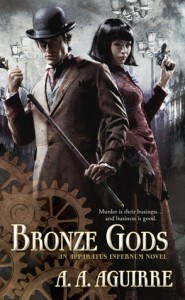 Bronze Gods by A.A. Aguirre (A Review) I just swallowed this one whole and came out the other side begging for more (which is coming, see tomorrow’s post). Bronze Gods is a masterful blend of steampunk, urban fantasy, mystery and police procedural, tied together with some truly awesome worldbuilding and the fantastic partnership of two characters who need each other to remain whole. This one blew me away.
Bronze Gods by A.A. Aguirre (A Review) I just swallowed this one whole and came out the other side begging for more (which is coming, see tomorrow’s post). Bronze Gods is a masterful blend of steampunk, urban fantasy, mystery and police procedural, tied together with some truly awesome worldbuilding and the fantastic partnership of two characters who need each other to remain whole. This one blew me away.
Fiddlehead by Cherie Priest (A Review) If Bronze Gods is steampunk as urban fantasy, then Fiddlehead is steampunk as epic. Fiddlehead is the culmination of Priest’s long-running Clockwork Century alternate history steampunk epic, and it’s a doozy. She started with poisonous gas knocking Seattle back to the stone age in Boneshaker, and rippling that event into an endless U.S. Civil War. With a reason for zombies to be part of the mix. Fiddlehead brings it all to roaring conclusion, and almost aligns history back to the world as we know it. Epic alternate history.
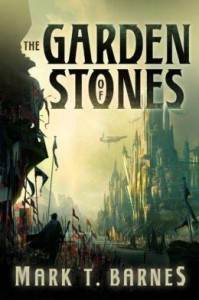 The Garden of Stones by Mark T. Barnes (A Review) This one blew me away. Library Journal sends me books to review, and it’s hit or miss. This was one that absolutely surprised and delighted me. It is epic fantasy, and the world is not just complex, but the reader starts in the middle. There’s no gentle introduction. You feel that this place is ancient and has eons of history, as do all of the characters. It’s immersive and amazing. If you like your fantasy on the complicated side, with lots of betrayals, The Garden of Stones is a treat.
The Garden of Stones by Mark T. Barnes (A Review) This one blew me away. Library Journal sends me books to review, and it’s hit or miss. This was one that absolutely surprised and delighted me. It is epic fantasy, and the world is not just complex, but the reader starts in the middle. There’s no gentle introduction. You feel that this place is ancient and has eons of history, as do all of the characters. It’s immersive and amazing. If you like your fantasy on the complicated side, with lots of betrayals, The Garden of Stones is a treat.
Monsters: The 1985 Chicago Bears and the Wild Heart of Football by Rich Cohen (A Review) These are not the kind of monsters I usually read about, and this was not the kind of review I usually write. But the 1985 Bears were my team, and I’ve never been able to explain why that year was so damn much fun to anyone else. This book does it. And at the same time, I can’t watch a game now without thinking about this book, and what it has to say about CTE and the high cost of playing the game we all loved to watch.
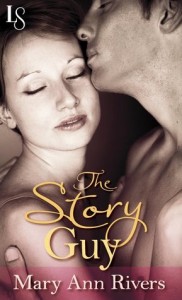 The Story Guy by Mary Ann Rivers (A Review) This is the one carryover from the Best Ebook Romances list, because it was so good that I couldn’t leave it out. The Story Guy was Mary Ann Rivers debut story, and it was an absolute winner. What makes it so good is that the issues that have to be overcome in this story are real; there are no billionaires or fantastically gorgeous Hollywood types in this tale, just an accountant and a librarian (go us!) who have real-world roadblocks to get past to reach a happy ending, if they can.
The Story Guy by Mary Ann Rivers (A Review) This is the one carryover from the Best Ebook Romances list, because it was so good that I couldn’t leave it out. The Story Guy was Mary Ann Rivers debut story, and it was an absolute winner. What makes it so good is that the issues that have to be overcome in this story are real; there are no billionaires or fantastically gorgeous Hollywood types in this tale, just an accountant and a librarian (go us!) who have real-world roadblocks to get past to reach a happy ending, if they can.
The Grove by Jean Johnson (A Review) This one is in Jean’s fantasy romance series, the Guardians of Destiny. And that series is a loose followup to her Sons of Destiny series. I’ve read both, and they are just tremendously fun. The fantasy worldbuilding is terrific, the romance is hot, and her heroines and heroes are always equal. No alpha-holes and no doormats need apply. (Her military science fiction series, Theirs Not to Reason Why, is also marvelous!)
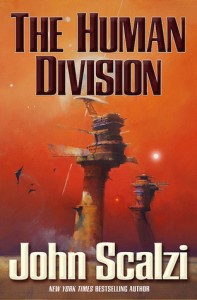 The Human Division by John Scalzi (A- Review) Last but absolutely not least, John Scalzi’s return to his Old Man’s War series. Old Man’s War is one of my favorite books ever, and I pretty much shove it at anyone who even hints that they like SF and haven’t read it. So anything new in the OMW universe is automatically worth a read for me. The Human Division took the story in the new directions that followed from the end of The Last Colony, but left LOTS of unanswered questions. There was quite a bit of Scalzi’s trademark humor, but this is not intended as a funny book like Redshirts. I think this story is going to go to some dark places before it ends. But it’s awesome.
The Human Division by John Scalzi (A- Review) Last but absolutely not least, John Scalzi’s return to his Old Man’s War series. Old Man’s War is one of my favorite books ever, and I pretty much shove it at anyone who even hints that they like SF and haven’t read it. So anything new in the OMW universe is automatically worth a read for me. The Human Division took the story in the new directions that followed from the end of The Last Colony, but left LOTS of unanswered questions. There was quite a bit of Scalzi’s trademark humor, but this is not intended as a funny book like Redshirts. I think this story is going to go to some dark places before it ends. But it’s awesome.
Honorable Mention: Clean by Alex Hughes (A+ Review) I adored this urban fantasy set in a post-tech wars dystopian future. Her flawed hero reminded me so much of the version of Sherlock Holmes in Elementary, but her messed-up Atlanta looked like a bad version of a place we could all too easily get to from here. The ONLY reason it didn’t make the “Best of 2013” list is that I’m late to the party. Clean was published in 2012.
Contributions from Cass:
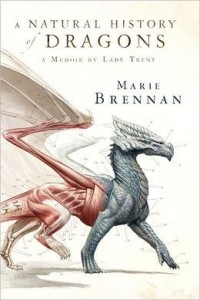 A Natural History of Dragons by Marie Brennan (5 Star Review) because it was THE LITERARY EMBODIMENT OF DRACONIC PERFECTION. There is no more amazing depiction of dragons out there. It easily soared above my previous Dragon Favorites, and utterly crushed the Dragon Posers people are always trying to torment me with.
A Natural History of Dragons by Marie Brennan (5 Star Review) because it was THE LITERARY EMBODIMENT OF DRACONIC PERFECTION. There is no more amazing depiction of dragons out there. It easily soared above my previous Dragon Favorites, and utterly crushed the Dragon Posers people are always trying to torment me with.
UPDATE FROM CASS: I invented a new rating scale for this one. I did not give it a mere 5/5 stars – but rather 15 stars. Nothing Marlene read this year hit that level of awesome. Come back sometime in February (March?) and see my feelings on the sequel.
The Mad Scientist’s Guide to World Domination edited by John Joseph Adams (4 Star Review). Though I was a wee bit nervous when, at the WorldCon Mad Science Panel, certain contributors had some suspiciously specific ideas about how to rain mayhem and destruction down onto the audience. (Someone give Seanan a Hugo just to distract her from setting off an international incident. Please?)
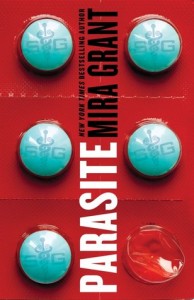 Parasite by Mira Grant (4.5 Star Review) Parasites freak me right the fuck out. There is nothing more horrifying to me than a society where MEDICAL PROFESSIONALS tell everyone to ingest a goddamn tapeworm as a cure-all. Could I see the sheep doing it? Yes. Which only amps the terror up.
Parasite by Mira Grant (4.5 Star Review) Parasites freak me right the fuck out. There is nothing more horrifying to me than a society where MEDICAL PROFESSIONALS tell everyone to ingest a goddamn tapeworm as a cure-all. Could I see the sheep doing it? Yes. Which only amps the terror up.
So that’s our list for 2013. What’s on your list?

